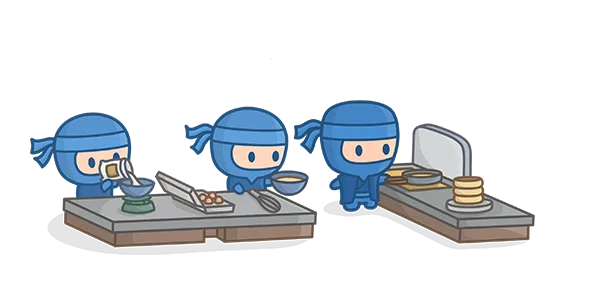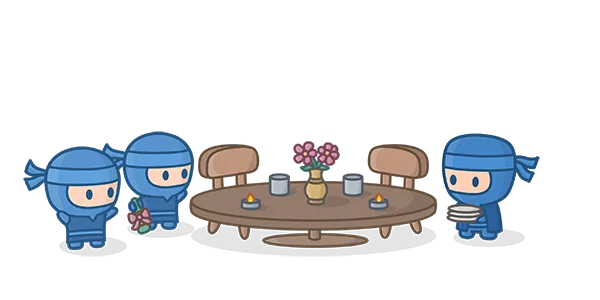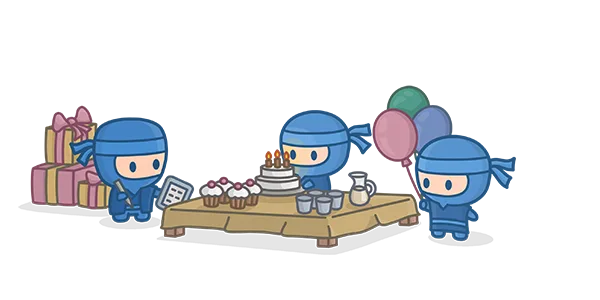
Leading through Solidarity
Dominant Aspects
If humans were computers, our dominant traits would be the operating system that is embedded and hard-coded in our minds. These deeply ingrained behaviors run on autopilot, driving our every action without conscious thought. Like breathing or blinking, we can actively choose to control our actions with enough concentration. However, most of the time, our recurring behaviors seem to be driven by our subconscious, functioning effortlessly and instinctively.
Instinct is a marvelous thing. It can
neither be explained nor ignored.
Agatha Christie
Dominant traits are often mistaken as strengths in most other personality systems. But here in Personality Ninja, we hold a different view. To us, traits are just traits, shaped by the wiring of our cognitive functions. Whether a trait is good or bad largely depends on the way it is used. As such, these traits can either be the source of one's greatest strengths, or the cause of their biggest downfall.
Naturally, we will hone our dominant traits, refining them into our super strengths. However, if we are not careful, there is a chance that we may push our dominant traits into overdrive, manifesting them in very unhealthy ways. In the end, our dominant traits are our natural tendencies and nothing more. The key to harnessing them effectively lies in knowing when, where, and how to use them.
Protectors are proud of the roles they play in their families and communities. When others count on them to do something, they take it very seriously and will always aim to do their best. They pay close attention to the little details so that no mistakes can slip through the cracks. Being dedicated people, Protectors naturally excel at what they do, delivering much more than what is expected of them.

However, as Protectors want everything to be as perfect as it can be, they may become overly particular at times. They might obsess over every little detail to the point where it seems compulsive, spending hours making tiny adjustments that are invisible to everyone but themselves. As a result, Protectors end up wasting their time on the pointless little things that wouldn't make much of a difference.
If they get entrenched in a deep desire for perfection, Protectors might end up creating unnecessary stress for themselves. They might worry over everything they do, afraid that it won't match up to expectations. While others are amazed by their efforts, Protectors might only see the flaws in their work. The thing is, not everything is meant to be perfect, and Protectors need to recognize that. Otherwise, nothing will ever be good enough in their eyes.
Protectors are happiest when they create a sense of harmony and stability not only for themselves, but also for those around them. They often plan and prepare for whatever they need to do, making sure they don't miss out on any important matters. Organized in nature, they always stick to schedules and routines, making them consistent and reliable people. Bottom line is, if there is ever someone to count on, it would be none other than the Protectors.

Unfortunately, the desire for stability can sometimes cage Protectors in their own little world. Once their lifestyle is safe and secure, they might not dare to try anything new, fearing that doing so will only invite chaos. As such, they are often limited to only what they are familiar with. Sadly, there will come a day where Protectors must face concerns that are beyond their tiny bubble, and when that day comes, the problems might be too overwhelming to shoulder.
Preferring things to be predictable, Protectors can feel very anxious about change. They may see change as a hassle that only disrupts the structure of their lives. Hence, when hit by the unexpected, they might be overwhelmed by the sudden loss of control. It all goes downhill from there, as Protectors fall into a spiral of stress and hopelessness, believing that everything they do will somehow go wrong.
More than just imprints of the past, memories remind us of what is important. For Protectors, these memories help them make better choices and decisions. Protectors are constantly taking mental notes of what people like or dislike. This comes in handy when Protectors are trying to cheer others up, as they can easily remember what makes a person happy. As such, Protectors just seem to know how to put a smile on someone's face, spreading joy all around.

But as the times change, Protectors might struggle to adapt. Instead of learning new ways to deal with emerging problems, they might simply repeat what they have always done in the past, oblivious to the fact that the current situation requires a fresh approach. In doing so, they risk causing more harm than good, making matters worse. While the past can be a useful point of reference, Protectors must also be willing to improvise if they want to keep up with the times.
At their worst, Protectors might cling on to outdated ways of doing things, refusing to let go of the past. Even when others are calling for an urgent need for change, some Protectors may stubbornly insist on their old methods. The truth is, they fear losing the comfort that their traditions bring, and as such, become blinded to what others have to say. Unwilling to move on, such Protectors cause suffering not only to themselves, but also to the people they care for.
Whether it's a festive celebration or a family vacation, Protectors love planning events that bring people together. They lay out the details through schedules and inventories, ensuring that everything is covered from A to Z. Being thoughtful and attentive, Protectors consider the little things that might brighten someone's day. With all that, their loved ones can always have a great time whenever they're around.

However, Protectors can get pretty fixated on their plans at times, refusing to make any changes. They fear that altering it would only ruin what they had in mind. As such, they may be reluctant to accept new ideas, even the ones that everyone else prefer. Protectors need to realize that what they had decided beforehand might not always be the best, and being open to change can often be for the better.
Under stress, Protectors might become pesky micromanagers, monitoring every single detail in their team. They might nitpick what their teammates do and attempt to correct every decision they make. When this happens, others don't just feel annoyed, but the trust between them and Protectors will also be eroded. In the end, Protectors might think that they are keeping the peace, but in reality, they are only sowing resentment.
To wrap it up, dominant traits are neither our strengths nor are they our weaknesses. They are simply traits we tend to exhibit naturally in our daily lives without much realization.
The biggest reminder here is this: a trait is a trait. It is a unique characteristic of an archetype, each carrying its own pros and cons. With that understanding, let us now venture into the next set of traits that we do more consciously—our supportive traits.
Read next section →
Supportive Traits [Protector]